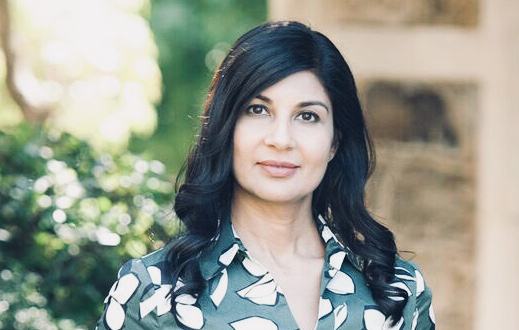8 Tips for Having a Meaningful Money Talk in Your Marriage

Unlock Daily 30-Sec Tips for a Happier Relationship
👉 Subscribe FREEKey Takeaways
Marriage.com AI Quick Summary
Of all the issues couples face, there is probably none more sensitive and more potentially divisive than ‘money talk in your marriage.’ Your money. My money. How it becomes “our money.”
Money differences, while not generally the reason for divorce, are among the most pervasive and destructive barriers to marital satisfaction. Dealing with money is a fact of life, so how to talk about money in a relationship?
Discussing money or having the money talk in your marriage can be uncomfortable even for the most communicative couple. Here are some tips for talking with your partner about finances.
1. The sooner, the better
Ideally, couples should start talking about financial issues in relationships at the point where they are planning for a future together.
The more you know about each other’s expectations and the earlier you know it, the better equipped you are to make plans about how you’ll handle money.
Another best way to manage money in a marriage is to opt for pre-marital counseling. Talking about money matters is often part of that process.
If you’re past that point, it isn’t too late to learn about your partner’s views on money. Waiting until a money issue arises (and make no mistake, it will because life) means one of you may be in for quite a surprise. If left unresolved, the seeds of dissatisfaction are sewn.
2. Pick a neutral time
Wondering when to talk about finances in a relationship?
The absolute worst time to talk about money is when there’s a money crisis. In those moments, emotions are running high, and the chances of having a meaningful dialogue are slim to none.
Instead, choose a time and place where you can spend some time talking and listening to each other. If the home is busy or the scene of past money arguments, consider talking in a neutral space.
Take a walk, sit in the park, or chat over coffee. The important thing before having the money talk in your marriage is to give yourselves time and space to talk and listen.
3. What to talk about
Just the idea of sitting down to have the money talk can be unnerving. Right now, you’re probably wondering, “How do we even start? What do I say?”
The answer is, keep it simple. Start with inviting your partner to have the conversation. If money talk in your marriage has been a contentious topic, they might be a little wary.
Let them know that it’s not about a current money crisis, blaming or arguing, but about problem-solving and finding a way to work together to reach your goals as a couple.
One way to start is to talk about hypothetical situations and how each of you might respond – for example, a bounced check, the loss of a job, or a missed payment.
If you’re in a new relationship and considering your future, what are your respective thoughts about co-mingling funds, investing, and spending?
Explore expectations and concerns. Listen to understand each other’s point of view. Even if you’ve been together for a long time, chances are you’ll learn something about your partner and maybe something about yourself too.
4. Acknowledge your differences
Money, in so many ways, defines us – how we dress, what we drive, where we live. Money (or lack of it) makes us feel certain ways. And those roots run deep. Money is tied to all sorts of emotions and expectations, some of which were ingrained way before you became a couple.
Conflicts over money are often rooted in issues of security, control, safety, love, or self-esteem. Money just happens to be the trigger point.
Each of you brings a set of values and expectations with you. Saying “I do” doesn’t magically make you compatible. What meaning does money have for you? For your partner? It’s an important question to ask.
Know that your partner may have very different ideas about money management. It doesn’t mean one of you has to be right or wrong. It means that you have differences to be aware of and to keep in mind as you manage your finances.
5. Accept each other’s strengths
For all the ways you may differ in your money views, you each have strengths that you bring to the table. For example, you might have a really hard time balancing a checkbook or keeping up with receipts. Your partner might be a math whiz and an organizing genius.
Your partner might tend to be a bit impulsive with purchases. Budgeting might be your jam.
No one is perfect, and the good thing is, no one needs to be. You can each contribute to your financial plan. The key here is to find what works and build from there.
6. Honesty always
It might be tempting to fudge a bit and just say what you think your partner wants to hear. Resist that urge.
Money talks in your marriage have a way of touching off powerful emotions that escalate into big arguments. With emotions spilling over, true feelings come out. Then you have a money issue and an honesty issue.
The same holds true for hiding purchases, secret credit cards, and the like. Financial infidelity (yes, it has a name) is a real and destructive behavior that can have devastating consequences.
Instead, have the hard conversations. Say how you feel about money and spending and saving. Allow your partner with the same opportunity.
And, if you make a mistake, own it. When you and your partner have that level of trust in each other, you are in a much better position to handle the money problems when they come.
7. Plan together
Smart financial planning isn’t about who makes more money or who spends more. It’s more than simply spending or budgeting.
It’s not just about today. Navigating finances together is about deciding as a couple how you’ll pay your bills and save for your future, fund your lifestyle, and handle those unforeseen expenses that life has a way of sending us.
As you explore your ideas about money, you’ll begin to see some common ground. There are things you’ll agree on. There will be things that you will have to negotiate. A study has also suggested that couples with joint bank accounts have a higher sense of relationship satisfaction.
There might be a few things you have to agree to disagree on during a money talk in your marriage. That’s ok. The key here is to talk things through and be open to each other’s ideas.
Some couples actually do a periodic check-in to see if their plans are still working for them. The good thing about plans is that you can revisit them as situations and preferences change.
8. Don’t fear to ask for help
Whether you’re a new couple or have been together for years, money can be one of the hardest things to agree on. Sometimes, you’re so close to the issue that it’s hard to be objective. That’s when an expert can help you sort it all out.
The good news is, there’s an expert for every couple. New couples planning a future together may benefit from pre-marital counseling that includes a frank discussion about money.
Counseling can also help couples who have been together for a long time and just can’t seem to work it out on their own. Still, others might benefit from guidance from a financial expert.
Asking for help is not a sign of weakness or failure. On the contrary. Seeking help signals that you care enough about your relationship to find how to discuss finances with your spouse, and you’re willing to put in the work for and with each other.
An expert can help you learn new ways to talk about the hard things and how to support each other as you grow as a couple.
Also watch:
 Tips
Tips
Write your tip or submit a video tip
All tips are reviewed before the publishing.
Share this article on
Want to have a happier, healthier marriage?
If you feel disconnected or frustrated about the state of your marriage but want to avoid separation and/or divorce, the marriage.com course meant for married couples is an excellent resource to help you overcome the most challenging aspects of being married.
Related Articles
Recent Articles
Related Quizzes
Unlock Daily 30-Sec Tips for a Happier, Healthier Relationship
👉 Subscribe FREE on YouTube We'd love your feedback!
We'd love your feedback!
 Expert Q&A
Expert Q&A
Ask your question related to this topic & get the support you deserve from experts.



















 Thanks for your feedback!
Thanks for your feedback!